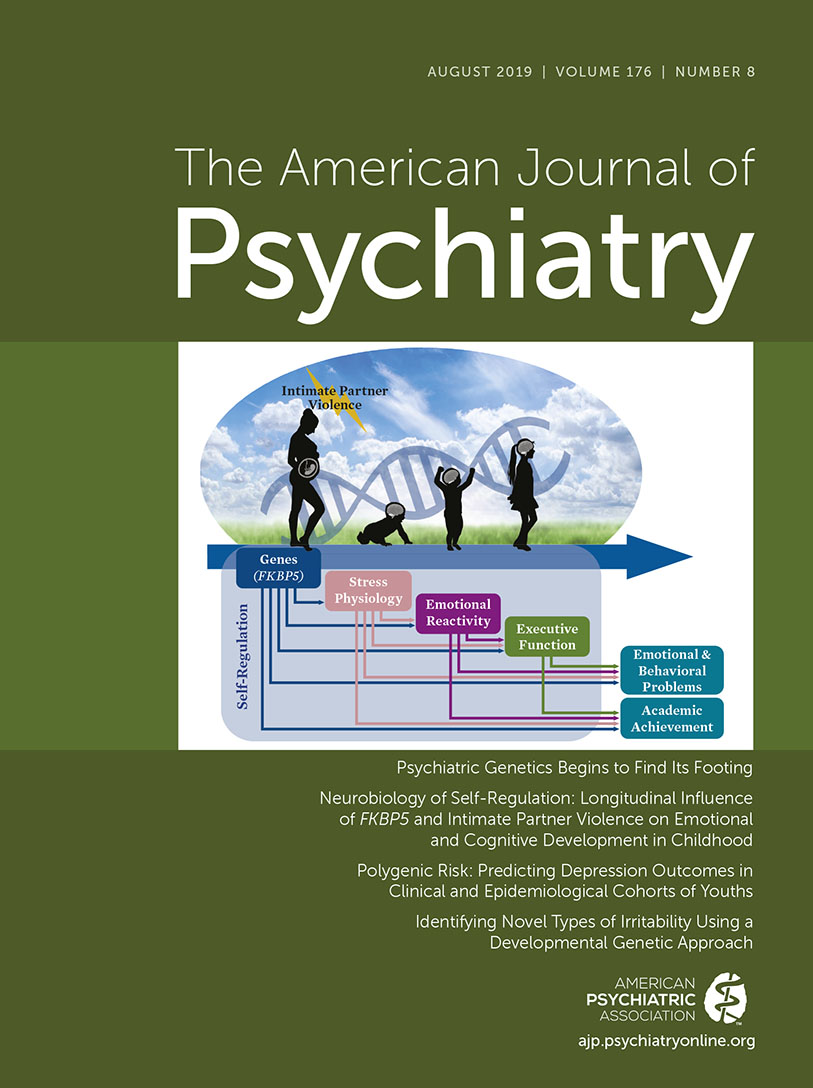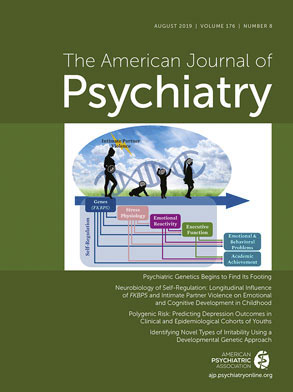Good afternoon, and thank you Dr. Sharfstein for that kind introduction. It is a great honor to speak to you as your incoming President. I am thankful for the trust you are granting me and hope that together we will continue to advance the care of our patients and strengthen the American Psychiatric Association. I want to thank everyone for your support and to especially thank my wife, Dr. Andrea Weiss, for her encouragement, help, and tolerance, especially for how much I am away from our home and family.
Dr. Stewart has led the APA through an impressive year of advocacy, introspection, and engagement during a challenging and tumultuous time in our history and country. I am grateful for her leadership and friendship. I look forward to carrying on our shared mission of advocating for better mental health care.
Thank you also to the organizers of this annual meeting: Dr. Levin and the APA staff. The Scientific Program Committee has put together a remarkable program of sessions that will indeed revitalize our thinking and our practices.
This is a historic year for the APA. One hundred seventy-five years after our 13 founders met in Philadelphia to form the first medical society in the country, we have made enormous strides as an organization and in the field of psychiatry. In 1844, there were 31 psychiatric hospitals scattered around the 26 states, which then constituted the United States. Much has improved, and much remains to be done, and it is vital for the APA to continue to evolve and change.
We are in the midst of two public health crises. Over 70,000 Americans died in 2017 of opioid overdoses. Suicide, as a cause of mortality in the U.S., rose 17% between 2004 and 2014. It is now the second leading cause of death for young adults. We are one of the only countries in the world with an increasing suicide rate.
At the same time, one in five of us will suffer from mental illness or addiction at some point during our lifetime, and up to 27% of our children will have to deal with mental illness or addiction.
Our society and government have fallen behind on much-needed funding of mental health care, which I would argue are major contributors to these crises. For example, the number of in-patient psychiatric beds has dropped precipitously over the last several decades. We now have about a third of the inpatient capacity to help our patients as they do in the European Union. This is an especially serious problem impacting people with severe mental illness.
We know, given the shortage of treatment resources in our communities, where many who need care are ending up: homeless or incarcerated. We need to shift the priorities of policymakers, as the epidemic of suicide and overdose deaths affects both blue and red states. It will require the shifting of resources if we are to reduce deaths and disability. The warehousing of our fellow citizens with serious mental illness and substance disorders in jails and prisons or on the streets of our cities should be unacceptable to all of us.
Even with these challenges, I have reasons to be optimistic. We have made strides over the past decades in identifying effective treatments and care strategies, and we will make even more in the years to come. Awareness of the impact of social determinants of mental health, environmental concerns, and issues of inclusion and diversity need and will receive our continued attention. Thanks in part to our efforts, we have seen a more serious discussion of mental health than ever before in this country.
During my tenure as President, I will focus on three main areas: addressing peoples’ ability to access mental health care, advancing the knowledge of our members so that they can continue to provide care of the highest quality, and continuing to attack the stigma and discrimination attached to mental illness. It’s through policy, practice, and advocacy that we can move the needle on these issues. The APA has all of you, and we are almost 39,000 strong.
The issue of why access is important can be summed up simply: I believe we have a moral and ethical obligation to do everything we can to facilitate the care of people who have significant mental health or substance use problems.
Given the numbers of people seeking care and the current shortage of psychiatrists, experts estimate a need for an additional 15,000 psychiatrists over the next decade. We have to emphasize system-based solutions, including telepsychiatry, innovation, and collaboration with other medically trained health care providers. You will see more of the discussion of this in the fall at the IPS meeting in NYC. These collaborations and partnerships will be critical to ensuring that people can access effective mental health care when they need it.
But improving access will not make enough of a difference if we’re not also focused on providing effective high-quality care.
This is an opportunity for the APA. While the medical boards set the standards for licensure and insurers set reimbursement rates, they should not be the ones determining what high-quality and needed care really look like—that should be us. It is our job as professionals to lead with thoughtfulness and with recommendations based on empirical evidence.
Two APA initiatives are particularly important to this effort. The first, a 3-year grant from the Center for Medicare and Medicaid Services, will help to develop and test new quality measures. The APA’s mental health registry PsychPRO will test these quality measures, help reduce the burden of data collection, and provide tools to measure clinical outcomes. Measurement that is meaningful and not burdensome can facilitate quality care.
We are also partnering with SAMHSA on a 5-year grant to create the Clinical Support System for Serious Mental Illness. This will help doctors and other health providers treat patients with serious mental illness through consultation and education that can be accessed in real time.
These two examples illustrate strategic ways to integrate psychiatric expertise and technology in our work. The APA’s involvement in these efforts is exactly what we need to be doing to ensure that psychiatrists are offering the best care possible to the people they treat.
Now to address stigma. While we’ve come a long way, the societal stigma that lingers around mental illness and treatment is, frankly, about discrimination. We see it when state medical boards ask applicants about their history of psychiatric treatment or when life insurance companies come looking for treatment records. They’re not asking whether the disorder interferes with the ability to practice medicine or live a normal productive life. Rather, there is a not so subtle assumption that to have a mental illness is to be impaired. What does that say to people who’ve sought treatment or who might need to seek it out? It’s frightening to think that seeking treatment for an illness might compromise your livelihood or insurability. This is prejudicial and discriminatory and must be stopped.
We need as well to find additional creative ways to reduce stigma. Recently, I visited a psychiatric hospital in Israel where children from the local elementary school regularly visit for art lessons. These children are exposed to a psychiatric setting and staff, which will diminish their fears about mental illness and treatment.
We must continue to monitor and encourage enforcement of the mental health substance abuse parity law. Insurance companies are hardly putting forth their best efforts to make it happen. With reductions in stigma, it will be especially important to enforce parity to improve access. We are seeing several states either passing or considering versions of mental health parity enforcement laws. You might have heard of the recent ruling in Wit v. United Behavioral Health to see how a court can rule in a case about denial of needed services.
And finally, we must educate ourselves, our politicians, and our communities about the impact of social determinants of mental health on stigma, access, and quality outcomes.
All of us in this room know that “there’s no health without mental health.” The faster we can get the government and insurance companies to recognize the truth of this adage, the faster we will make progress against stigma and discrimination.
We need to work with Congress to make sure we have the research funding to accomplish many of these goals. NIH research funding for lung diseases exceeds the total research funding for schizophrenia, bipolar disorders, depression, autism, anxiety disorders, and suicide despite the death and disability associated with these mental illnesses. Coming from my background in the public sector and an academic medical center, I know how important this is—policymakers need to hear it loud and clear: you are seriously underfunding mental health research, and our country and people are the worse for it.
Looking out and ahead from this annual meeting, I know that the APA will continue to accomplish great things in this historic 175th year. We’ll work together to collaborate with other health care professionals to build access, we’ll begin to use more technology to help us provide the highest quality of care, and we’ll continue to turn the tide on stigma and discrimination against mental illness. All of these efforts will strengthen our profession and, more importantly, lead to better futures for the patients we treat.
Thank you again for entrusting me with the leadership of this organization over the next year. I look forward to seeing what we will do together.

